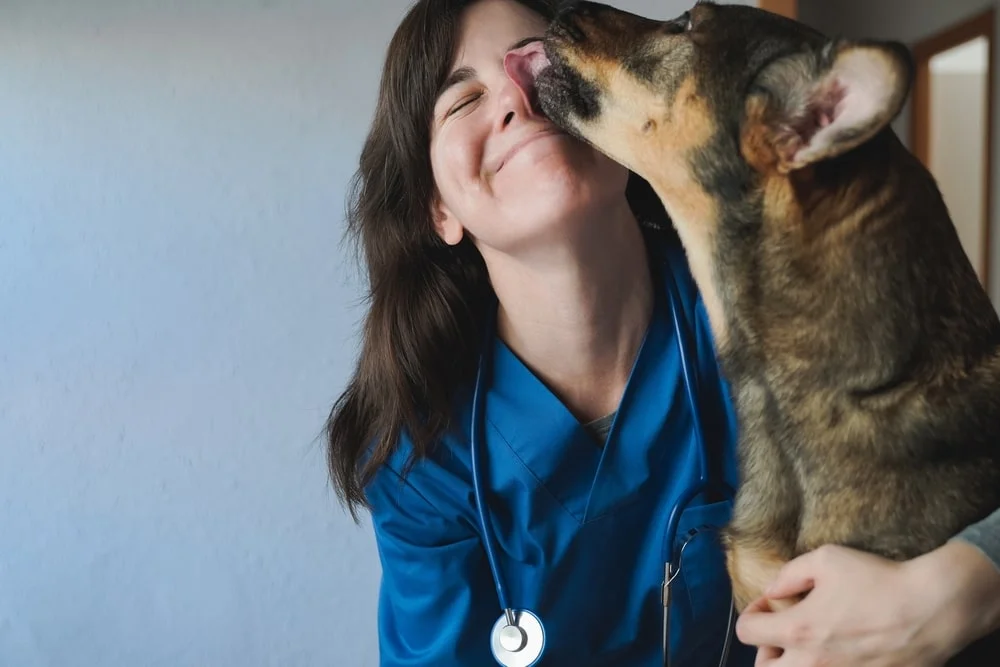PET HEALTH
Dog Poisoning: Dangers, Symptoms, and Treatment
It is said that although we rarely detect the smell of sugar in our morning coffee, a dog can detect a spoonful of sugar in an Olympic-sized swimming pool of water! Because of that, toxic fumes can be much more deadly to our canine and feline pals.
Inhaled Poisons
Inhaled poisons can include aerosol sprays, carbon monoxide, gases, and other fumes inhaled into your pet’s lungs.
Bleaches, detergents, and disinfectants are the most likely household chemicals to cause a problem, so be hyper-vigilant and keep pets away from these chemicals by securing them before, during, and after cleaning time. Pool/spa chemicals are also common causes of inhalation poisonings. Keep these products safely contained as well.
Be sure to get all pets out of the home, for at least 24 hours, when any pest control is used, even if it says “safe” or “pet friendly.” Ask for a guarantee in writing as due diligence. If a company won’t put it in writing, it may not be as safe as they claim. Also important to note is that “Animal Safe” does not necessarily mean safe for ALL species!
If your pet inhales toxic fumes, assume that his airways are inflamed. Most inhaled poisons will cause difficulty breathing. However, below are additional signs and symptoms to watch your pet for:
Signs & Symptoms of Inhaled Poisons in Pets
- Breathing difficulty or distress
- Sneezing, coughing, irritated or runny eyes
- Excessive salivation or vomiting
- Twitching or seizures
- Collapse
What to Do
If you believe your pet has been in contact with poisonous materials consider taking the following steps:
- Move the ailing pet to a well-ventilated area and monitor his breathing. Count the inhalations and exhalations to determine if they are in the normal range (10-30 breaths per minute for medium to large dogs; 20-40 bpm for small dogs and cats) and/or labored. Do not return your pets to the house or contaminated room until it is well aired out!
- Begin rescue breathing should the pet go into pulmonary arrest by holding the mouth closed and breathing into the nostrils every 2-3 seconds; smaller, quicker puff breaths for puppies and kittens.
- If there is no pulse, begin CPR and get to a veterinary for help at once. If the pet stops breathing, the heart will stop as well if he doesn’t resume spontaneous inhalations.
Don’t be caught unprepared when your pet needs you the most.
Pets can also be poisoned by toxins they ingest, toxins they absorb through their paw pads, nose or skin, and toxins that are injected under the skin (i.e. insect stings). Supervise your pet, keep the scene safe, and know what to do in case your pet becomes poisoned. Consider learning Pet First Aid, just in case the worst happens.
Be sure to also check out our guides for injected poisons and ingested poisons.
Get Coverage for Accidents and Emergencies With MetLife Pet
Inhaled poisons can be a scary experience for both you and your dog. They may need emergency vet care, and the last thing you probably want to worry about is the cost. This is when pet insurance could be valuable. A MetLife Pet dog insurance policy can help you cover some of the costs of emergencies — like poisoning or toxicity — making necessary medical care more financially accessible. Get a free quote for your customizable policy today so your pup has coverage for the future.

